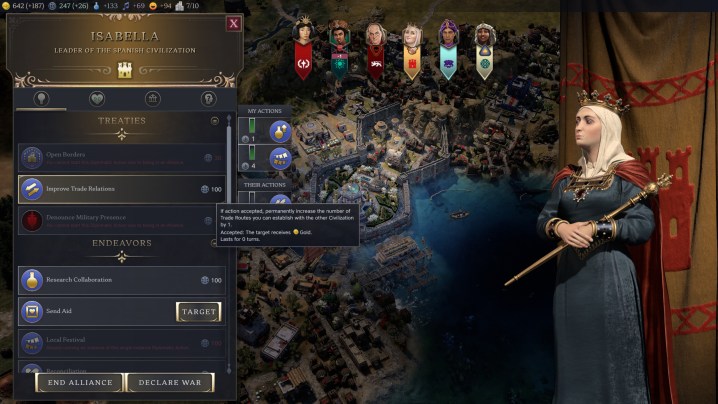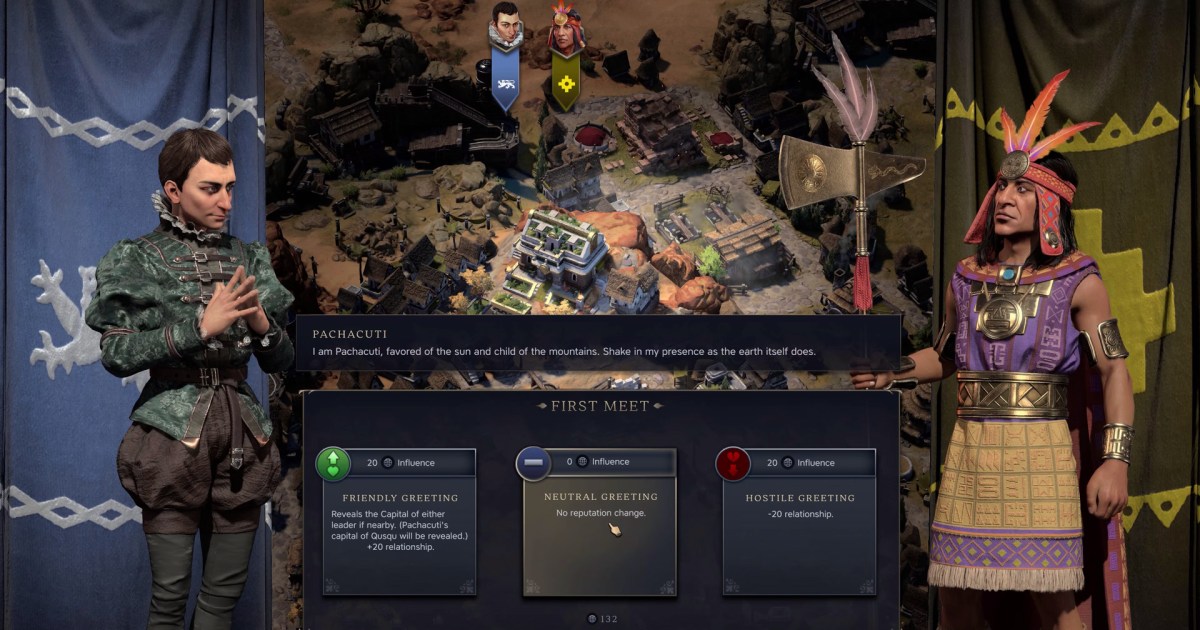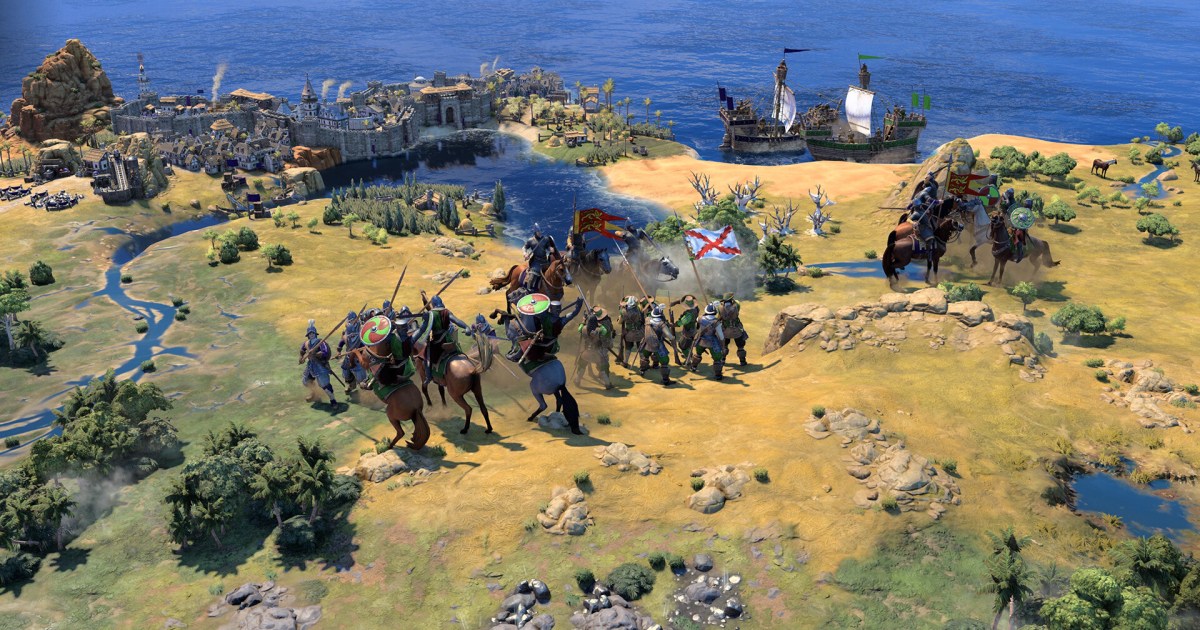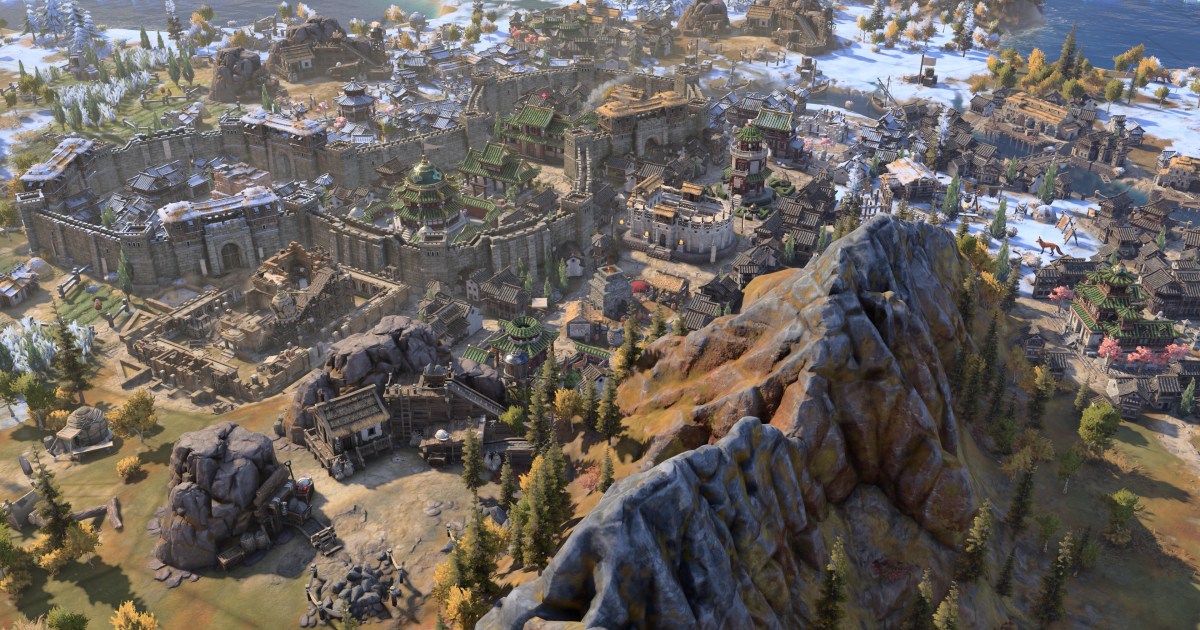Influence, a new dynamic currency in Civilization 7, adds layers of strategic depth to interactions with other leaders, both AI and human. Similar to managing gold or food, Influence requires careful accumulation and expenditure. This guide will break down everything you need to know about leveraging Influence to become a dominant force in Civilization 7.
Understanding Influence Accumulation and Loss
Influence accrues each turn based on various factors, including constructed structures, researched social policies, built Wonders, and more. Look for the Influence icon (a circle with a grid) to identify actions that impact your Influence. It’s important to note that Influence can be lost not only through spending but also through actions like surprise attacks or razing settlements. Monitor your Influence income and total, displayed at the top of the screen alongside your gold.
Utilizing Influence with Leaders
Your first opportunity to utilize Influence arises upon encountering a new civilization. Initial greetings (friendly, neutral, or hostile) can cost 20 Influence and significantly impact early relationships.
 A leader overview screen in Civilization 7.
A leader overview screen in Civilization 7.
Beyond initial greetings, Influence can be strategically spent on Treaties, Endeavors, Sanctions, and Espionage. Each action lasts a set number of turns and offers a chance to improve (or worsen) relations with other leaders, often providing temporary bonuses. For instance, improving trade relations might grant bonus gold to one or both leaders. The outcome depends on the other leader’s response: support (mutual benefit), acceptance (one-sided benefit), or rejection (no effect).
Furthermore, other leaders can propose actions requiring your Influence. Supporting or rejecting proposals also consumes a small amount of Influence.
Leveraging Influence with Independent Powers
Independent Powers, the new term for smaller NPC settlements, offer another avenue for Influence expenditure. While initially neutral, befriending them with Influence can lead to incorporation into your civilization. Once contact is established (provided they aren’t hostile), you can invest Influence to build a positive relationship. Sufficient Influence will allow you to become their suzerain and eventually absorb them as a new city.
Conclusion: The Power of Influence
Influence in Civilization 7 is not merely another resource; it’s a strategic tool for shaping diplomatic landscapes and achieving your goals. Mastering its accumulation and expenditure is crucial for navigating the complex web of international relations and solidifying your position as a powerful leader. By understanding the different ways to earn and spend Influence, players can gain a significant advantage over their rivals, forging alliances, crippling enemies, and ultimately achieving victory. From initial greetings to complex treaties, Influence represents a new dimension of strategic gameplay in Civilization 7.











